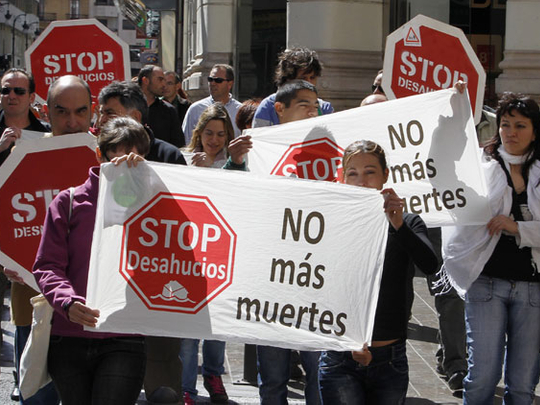
London: Cyprus probably won’t be the last Eurozone country to ask for an international bailout, according to a Reuters poll of economists, who cited Spain and Slovenia as the likeliest candidates.
The survey also showed no agreement over whether the latest bailout, which hinges on shutting one of Cyprus’ biggest banks at a cost to richer depositors, would be better or worse for the financial stability of the Eurozone.
Cyprus struck a €10-billion bailout deal with the European Union and International Monetary Fund on Monday, designed to untwine it from a failed banking sector that has long dominated its economy.
Thirty-six out of 48 economists polled this week said other countries will need help to pay their way, too.
There were 16 responses naming Spain, and 16 for Slovenia, whose outsized banking industry has drawn comparisons with Cyprus, making it the latest country to fall under the spotlight of the Eurozone’s debt crisis.
“The Cyprus deal has brought the European banking crisis to a new level,” said Lena Komileva, director of G+ Economics, a research consultancy in London.
She said this entailed the return of convertibility risk within the Eurozone — in other words, that euros in Cyprus can no longer be treated the same as euros elsewhere.
“This represents a uniquely bad deal for the euro’s future.”
Less liquid
Capital controls being prepared by Cyprus are one reason for that convertibility risk. Intended to prevent a run on the banks from depositors anxious to withdraw their savings, the controls effectively render a Cypriot euro less liquid than, say, euros in France, where no such restrictions exist.
Still, 38 out of 46 economists said capital controls for Cyprus were appropriate, with the alternative being an uncontrolled exodus of cash from the country. The other eight disagreed.
European policymakers have stressed any controls are likely to be temporary, lasting days or weeks. Analysts were less sure.
Thirty out of 46 said controls would last months, while 13 expected they would endure a matter of weeks. Three said they could last years.
“Iceland is still having capital controls, so it might take months if not years in Cyprus before the situation is stabilised,” said Peter Vanden Houte, chief Eurozone economist at ING in Brussels, referring to the banking crisis that brought Iceland to its knees in 2008.
Implications
Policymakers have been at pains to point out the latest bailout is tailored for Cyprus after the head of the Eurogroup of Eurozone finance ministers Jeroen Dijsselbloem on Monday suggested the bailout could serve as model for dealing with future banking crises.
While he later put out a statement that Cyprus was a specific case, economists were split about the wider implications for other countries.
Nineteen said the choice to close the country’s second-largest bank, rather than recapitalising it, was a better approach for the financial stability of the Eurozone. Fourteen disagreed, and 12 said it made no difference.
“Whilst the approach means that financial sector problems can be dealt with more quickly, which is positive from a long-term perspective, it actually lowers the short-term financial stability,” said Elwin de Groot, senior market economist at Rabobank International in Utrecht.
“It may lead to re-fragmentation between core and periphery and could fuel bank runs if there is merely the perception of a looming bailout.”
Peripheral countries
So far there have been few signs savers in Spain and Slovenia, and other struggling peripheral Eurozone countries, have been withdrawing cash in response to the Cypriot crisis.
Spain’s finance minister Luis de Guindos said in an interview on Sunday he had “absolutely ruled out” asking for international aid to help with its economic problems.
Similarly, European Central Bank Governing Council Member Marko Kranjec said last week he was very sure Slovenia, whose central bank he heads, would not follow Cyprus.
Among others cited as likely to need a bailout, Italy was mentioned by six. There was a handful of responses for Malta, France, and Portugal, which already has one.
The wider poll on European Central Bank policy showed little change in expectations, with interest rates set to remain on hold deep into next year.












